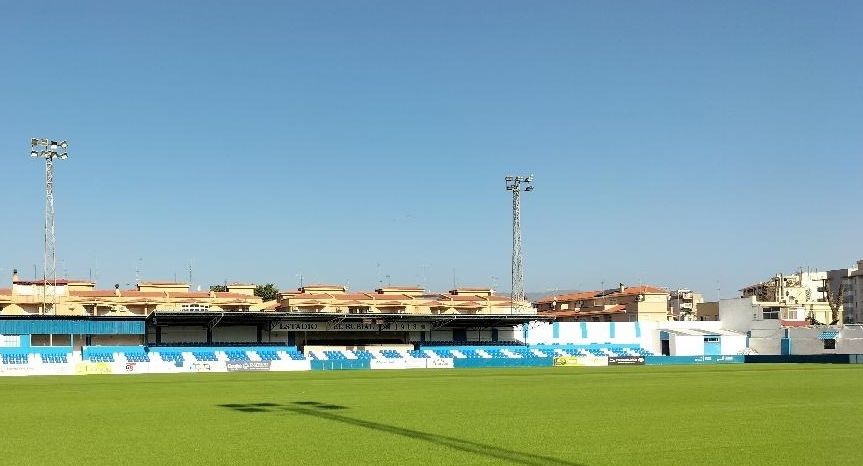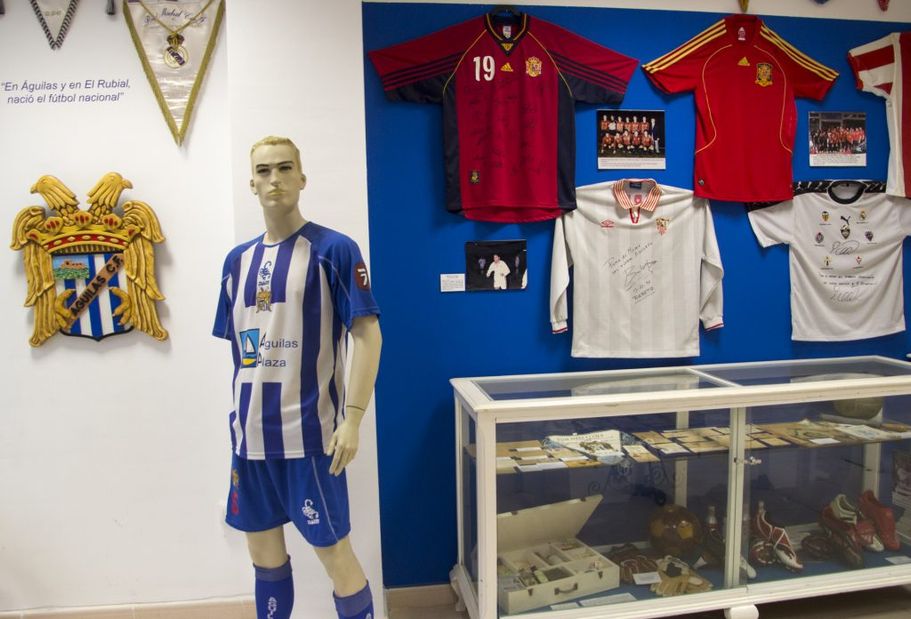El Rubial
- Scotland's Spanish Home

The beach is good, the water Mediterranean warm, the town still very Spanish but just a couple of streets back from its long promenade and the waves beyond it has two secrets. The first is one of the most beautiful, small stadia I have ever seen, resplendently blue and white in Costa sun with the plastic confined to the seats for the maximum of 4000 spectators and the grass of the newly-laid pitch growing at its greenest. The second, again just back from the sand, is a tiny museum that takes the stadium's club through the story of its one hundred plus seasons since a Scotsman brought football to these people and taught them how to play not just the but our game.

And a clue to the beginning of that story is contained in the name of the street that lies alongside one side, the seaward side, of the football ground, the oldest football one still in continuous use certainly within Spain, probably in Iberia. It is called Calle Juan Gray, the "a" not an "e" in the surname being quietly crucial to this tale. Named for John Gray, born in Kelso, raised in Edinburgh, it recalls not just the carrier of the beautiful game but technically perhaps from 1913 still the owner, albeit seventy years now after his passing, of the soil, in which the adjacent and immaculate pitch is rooted.
The town is Aguilas, between Cartagena and Almeria, and John Gray arrived here, a clerk at home, in about 1891. And it was here too that he built up a number of successful businesses, the processing of esparto grass for paper-making back in the UK, banking, the exportation of metal ores from the surrounding towns, that made him a reasonable fortune. When he married by Edinburgh, he brought his wife to stay in his Spanish home, where he was a member of both the local, British community and also became a much-regarded part of the Spanish one. And to a continuing extent that was due to the passion he carried from Scotland for the round-ball.

To my count Aguilas has had a least four football teams, two of them, the first two founded, funded and trained by John Gray. The current one, Aguilas Futbol Club, now fully-professional and in the Segunda Federacion-Group 4, rose in 2010 from the ashes of Aguilas Club de Futbol. It in turn was formed in 1925 as a replacement for Club Deportivo Aguileno (1907-1917). But all three play or have played, the first in part on a field pre-stadium, at El Rubial and in Caledonian blue and white.
Moreover, CD Aguileno, which remained undefeated throughout its existence, had been preceded by Sporting Club Aguileno, once more, this time in 1896, made possible financially, technically and presumably Scottish-tactically by Gray and with a record not just of 26 out of 26 wins but also zero goals conceded during its again decade of activity. Furthermore, it was Gray, who in 1913 bought from its then owner, a local farmer, much of the land, on which the stadium has been consequently developed with two quirks. The first is the orientation of the pitch, probably not even considered at the time. Because of the winter sun in Spain they are laid out north-south. El Rubial is east-west, the goalies regularly needing to wear a cap. The second is that ownership. Before Mr and Mrs John Gray sold up and left Aguilas to retire to Britain, he dying in Hampshire in 1953 aged ninety-two, the piece of ground he had bought was bequeathed to the town in perpetuity, as long as sport was played on it. It has been so the question has not arisen. But what if were not?
(With many thanks to all I met in Aguilas. It should be a place of pilgrimage for all Scots football-fans.)